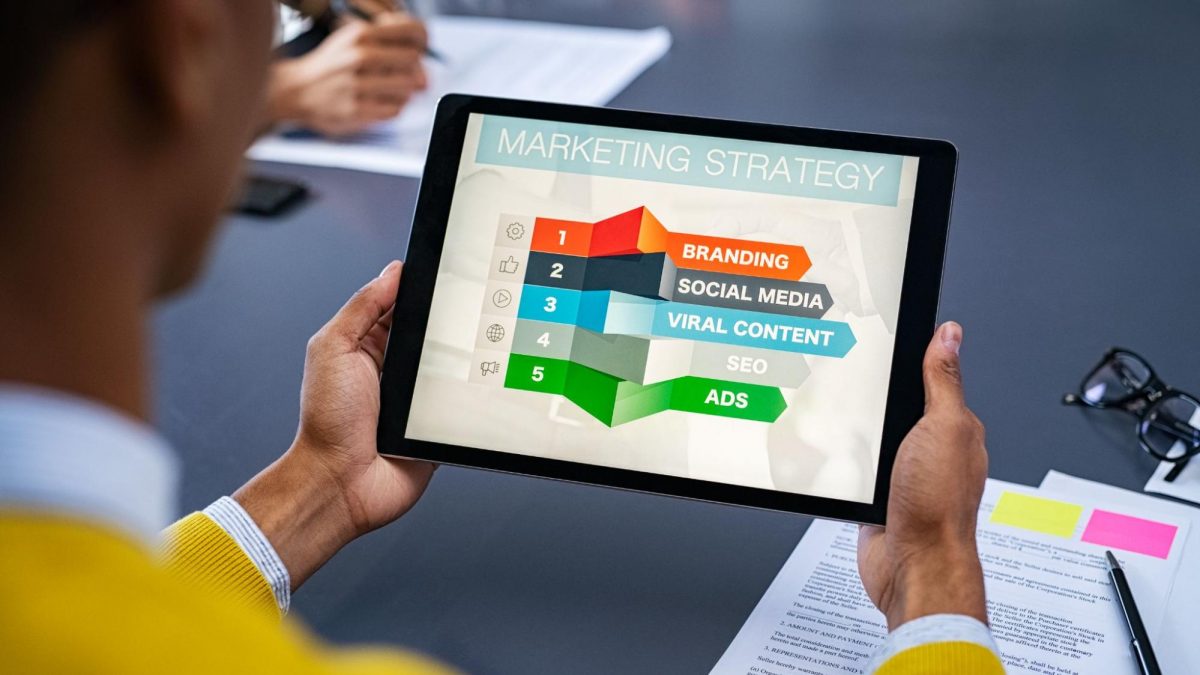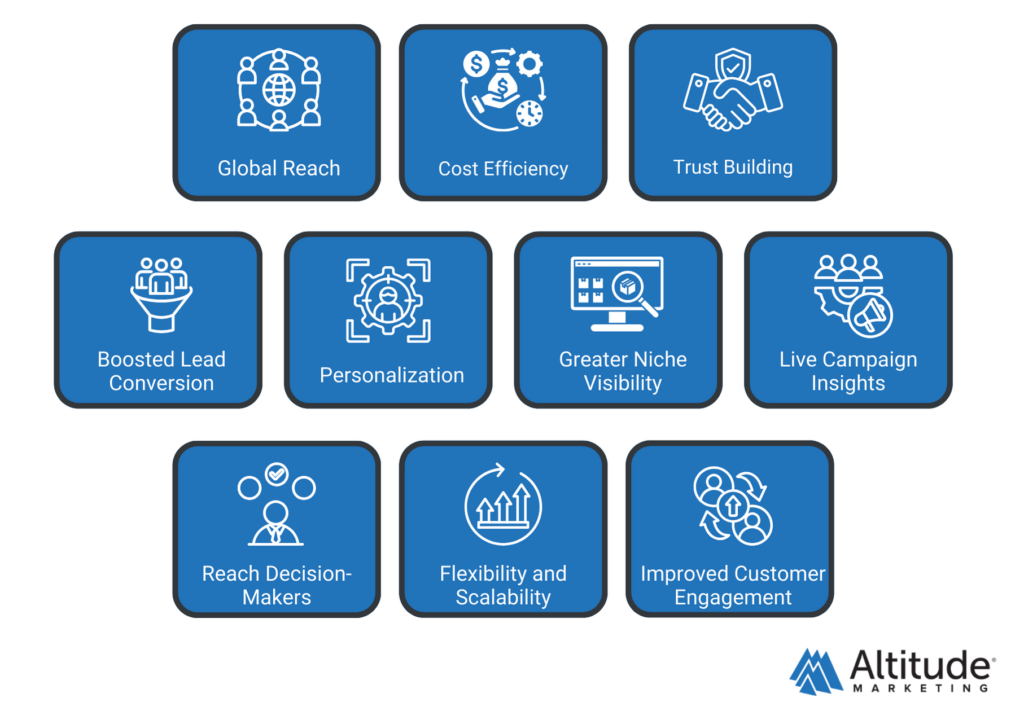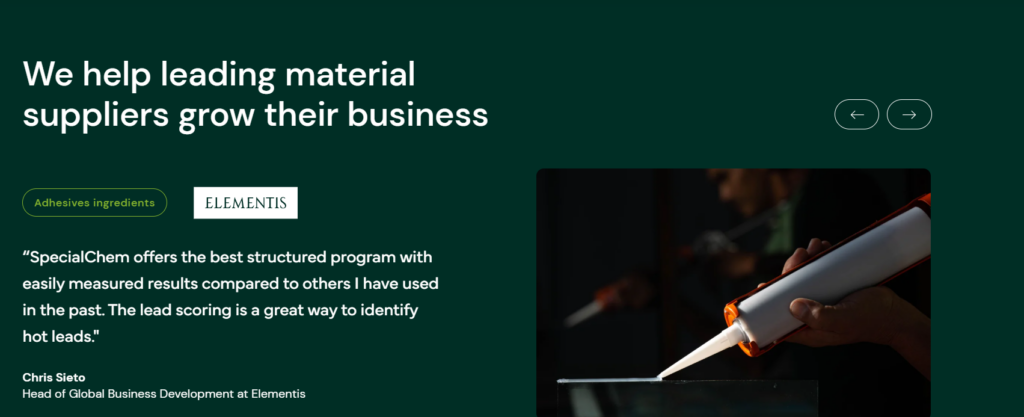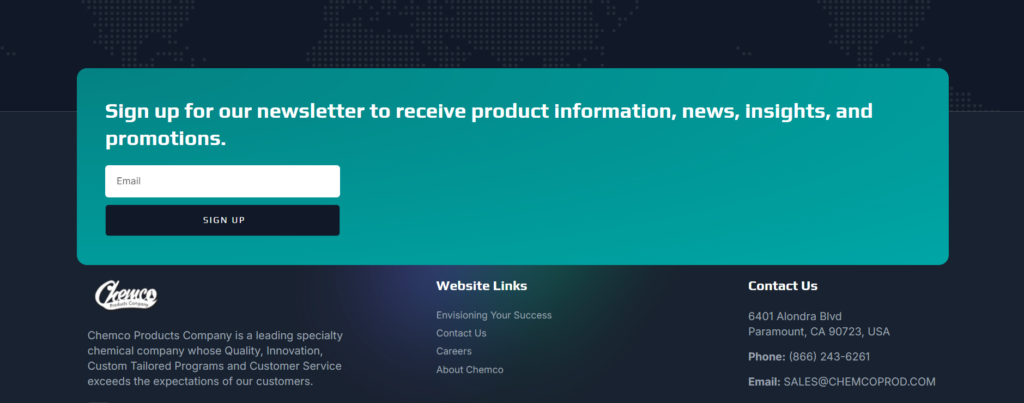How can specialty chemical companies attract their target audience? Specialty chemical companies often face challenges like explaining complex products, managing long sales cycles, and meeting the demands of specialized customers. Traditional marketing methods are rarely enough to address these issues.
Digital marketing offers a powerful alternative, enabling businesses to effectively reach the right buyers, educate prospects, and establish trust through targeted and measurable strategies.
From SEO tailored to technical searches to precise email campaigns, the right strategies can make a significant impact. This guide explores proven digital marketing approaches explicitly designed for the needs of specialty chemical companies.

6 Best Digital Marketing Strategies for Specialty Chemical Companies
Why Digital Marketing is Essential for Specialty Chemical Companies
Digital marketing has become indispensable for specialty chemical companies, offering distinct advantages over traditional methods. By targeting specific audiences, showcasing expertise, and delivering measurable results, digital marketing helps these companies address unique challenges effectively. Here are the key benefits:

Why Technical Expertise Matters in Specialty Chemical Marketing
Marketing in the specialty chemical industry demands tailored strategies to engage a highly technical audience. Decision-makers prioritize suppliers who showcase deep industry knowledge and problem-solving capabilities, making technical expertise a cornerstone of effective digital marketing. Here’s how specialty chemical companies can leverage their expertise to stand out:
- Highlight Niche Expertise: Showcase technical knowledge through detailed product specifications, case studies, and real-world applications. Target decision-makers like engineers and researchers by addressing their specific challenges.
- Create Educational Content: Develop industry-focused white papers, webinars, and eBooks to position your company as a thought leader. For example, a guide on “Choosing the Right Specialty Adhesives for Automotive Applications” can attract qualified leads.
- Incorporate Compliance and Sustainability Messaging: Emphasize adherence to regulations (e.g., REACH, FDA) and sustainability initiatives like eco-friendly formulations or reduced carbon footprints. Appeal to clients prioritizing compliance and environmental responsibility.
- Engage Industry Professionals Directly: Use LinkedIn to connect with decision-makers by sharing technical content, joining industry discussions, and running targeted ads. Build trust and authority within your niche.
By focusing on technical expertise and aligning with the needs of a specialized audience, specialty chemical companies can strengthen their market position and foster lasting client relationships.
6 Key Digital Marketing Strategies for Specialty Chemical Companies
For specialty chemical companies, digital marketing isn’t just about having an online presence; it’s about using the right tools and strategies to reach and engage a highly specific audience. These strategies must address the unique needs of the industry, including explaining complex products, building trust with decision-makers, and managing long sales cycles.
The following approaches focus on driving measurable results while ensuring that every effort aligns with the technical and specialized nature of the products offered. By combining targeted campaigns, insightful content, and data-driven decisions, specialty chemical businesses can effectively position themselves as leaders in their industry. Let’s explore the most impactful strategies in detail.
Search Engine Optimization (SEO)
SEO is foundational for increasing your visibility to potential buyers searching online for specialty chemical solutions. By implementing targeted strategies, you can ensure your website ranks higher and attracts the right audience. Here are the key components to focus on:
- Keyword Optimization: Focus on niche keywords like “polymer stabilizers for coatings” or “high-performance specialty adhesives” to capture specific search intent. Use keyword research tools to identify terms your target audience frequently searches for.
- On-Page SEO: Optimize website pages with accurate meta tags, engaging headers, and high-quality content that aligns with search intent. For example, product pages should highlight technical specifications alongside their applications.
- Content Creation: Develop blogs, white papers, and case studies that address industry pain points. These resources help buyers understand your expertise and drive organic traffic to your website.
- Backlink Building: Secure backlinks from reputable industry websites, journals, or forums. Partnerships with associations or contributions to industry blogs can boost your authority.
- Technical SEO: Ensure your website is mobile-friendly, fast-loading, and structured to improve indexing by search engines.
Implementing these SEO strategies ensures that your specialty chemical company not only ranks higher on search engines but also attracts and engages the right audience, driving meaningful traffic and fostering long-term business growth.
Content Marketing
Content marketing is a cornerstone strategy for specialty chemical companies, helping them communicate complex information, establish authority, and engage their audience effectively.
Technical Articles
Writing detailed yet accessible articles allows companies to educate their audience about product applications and industry challenges. For example, articles like “The Impact of Specialty Chemicals on Sustainable Agriculture” can address pressing industry topics while showcasing expertise.
Case Studies
Highlighting real-world applications of your products demonstrates their effectiveness and builds trust. For instance, a case study on how your product improved a client’s manufacturing efficiency provides tangible proof of value.
Infographics and Videos
Visual content simplifies complex concepts, making it easier for decision-makers to understand technical details. Use an infographic to explain a chemical process or a video to demonstrate product benefits in action.
By utilizing content marketing, specialty chemical companies can effectively bridge the gap between technical complexity and audience understanding. Consistently creating valuable, targeted content positions your business as a trusted industry leader and builds lasting connections with potential clients.
Social Media Marketing
Social media platforms, especially LinkedIn, are invaluable for specialty chemical companies to connect with professionals, share expertise, and establish authority. To maximize the potential of social media, it’s essential to implement specific tactics that align with your audience’s preferences and industry needs. Here are key strategies to effectively leverage these platforms:
LinkedIn Campaigns: Use LinkedIn to share product updates, technical articles, and success stories. Leverage paid campaigns to reach specific industries, job roles, and geographic regions.
Community Engagement: Join and actively participate in LinkedIn groups and forums dedicated to the chemical industry. Contribute insights, answer questions, and build credibility.
Twitter Updates: Use Twitter to post real-time updates about product launches, industry events, and company achievements. Incorporate trending hashtags to boost visibility.
Video Content: Share short videos on LinkedIn or Twitter demonstrating product applications or explaining technical solutions to engage your audience visually.
Social Listening: Monitor mentions of your brand or industry trends on social platforms to stay informed and engage in relevant conversations.
By using social media effectively, specialty chemical companies can strengthen their presence, connect with the right audience, and position themselves as trusted leaders.
Pay-Per-Click (PPC) Advertising
PPC advertising ensures your business gets prominent visibility by appearing at the top of search engine results or on relevant industry platforms. To make your PPC campaigns effective, focus on targeted approaches that align with the needs of your audience and drive measurable results. Here are some key tactics to implement:
- Google Ads Campaigns: Target keywords like “industrial adhesives supplier” or “chemical additives for water treatment” to attract high-quality leads searching for solutions.
- Ad Extensions: Enhance your ads with additional features such as contact links, certifications, or highlights like “Fast Delivery” to draw more clicks.
- Remarketing Ads: Reconnect with visitors who leave your website without converting by showing personalized ads that remind them of your offerings.
- Display Ads: Place visually appealing banner ads on industry-relevant websites to enhance brand awareness and reach new audiences.
- Competitor Keyword Bidding: Target competitor names or related keywords to redirect their audience to your solutions.
- Performance Tracking: Continuously monitor ad performance and refine campaigns to optimize ROI and ensure relevance to your audience.
With well-structured PPC campaigns, specialty chemical companies can drive targeted traffic, boost conversions, and maximize advertising ROI.
Email Marketing
Email marketing is a cost-effective way to nurture relationships, keep clients informed, and guide prospects through the sales funnel.
Segmented Campaigns
Divide your audience into segments based on their industry, geographic location, or specific needs. This allows you to send targeted messages, such as product recommendations tailored to their challenges.
Newsletters
Share updates like industry trends, product launches, and success stories to keep your brand relevant and your audience engaged. Consistent newsletters can position your company as a trusted industry resource.
Automated Follow-Ups
Set up email workflows to re-engage leads who have shown interest, such as those who downloaded a white paper or visited your website. Automation ensures timely communication without manual effort.
With well-planned email campaigns, specialty chemical companies can maintain strong communication with clients, nurture leads, and drive conversions. By personalizing messages and automating follow-ups, email marketing becomes a powerful tool for building relationships and enhancing customer loyalty.
Data-Driven Marketing Using AI
AI empowers specialty chemical companies to enhance their marketing strategies by leveraging data and automation.
Predictive Analytics
Analyze past trends and market data to predict future customer needs, allowing your company to proactively offer solutions. This helps with both marketing focus and production alignment.
Personalization
AI enables hyper-targeted campaigns by analyzing customer behavior, preferences, and history. For example, recommend relevant products based on past purchases or web activity.
Campaign Optimization
Track campaign performance in real-time using AI-powered analytics. Make informed adjustments to improve ROI, such as refining ad targeting or reallocating budgets for better-performing channels.
Integrating AI into your marketing strategy empowers your company to make smarter decisions, optimize campaigns, and deliver highly personalized customer experiences. By leveraging the insights AI provides, specialty chemical companies can stay ahead of market trends and achieve measurable results.
To effectively implement these strategies, specialty chemical companies can leverage a range of tools and techniques designed to streamline processes, enhance precision, and deliver measurable results.
Tools and Techniques for Implementing Digital Marketing Strategies
Strategy | Recommended Tools/Techniques |
SEO Optimization | |
Content Marketing | |
Social Media Marketing | |
PPC Advertising | |
Email Marketing | |
AI-Powered Marketing | |
Sustainability Messaging |
Future Trends in Digital Marketing for Specialty Chemicals
Digital marketing for specialty chemical companies is increasingly data-driven. By leveraging advanced technologies and addressing priorities like sustainability, businesses can stay competitive. The following trends highlight ways to refine strategies and achieve growth through innovation and customer-focused approaches.
AI and Machine Learning
AI tools are transforming digital marketing by uncovering customer behavior patterns, optimizing campaign performance, and enabling predictive targeting. Specialty chemical companies can leverage AI to identify market trends, forecast demand, and enhance product positioning for maximum impact and efficiency.
Sustainability Messaging
Sustainability is becoming a key differentiator in the specialty chemicals market. Highlighting eco-friendly products, renewable raw materials, and energy-efficient processes appeals to environmentally conscious customers. Demonstrating commitment to sustainability can strengthen brand loyalty and attract clients to prioritize ethical and sustainable sourcing.
Advanced Tools
Cutting-edge platforms tailored for industrial marketing, like CRM-integrated advertising tools and automation software, are revolutionizing campaign management. These tools streamline workflows, enable precise targeting, and provide actionable insights, empowering specialty chemical companies to achieve higher ROI and scalable marketing outcomes.
Take Your Specialty Chemical Marketing to the Next Level
Digital marketing enables specialty chemical companies to overcome niche challenges, connect with the right audience, and achieve measurable results. By implementing targeted strategies such as SEO, content marketing, and AI-driven insights, companies can secure their position as industry leaders.
FAQs
What is the digitalization of the chemical industry?
Digitalization in the chemical industry involves adopting technologies like AI, IoT, and data analytics to optimize operations, enhance supply chains, improve customer experiences, and enable smarter decision-making
What is the demand for specialty chemicals?
The demand for specialty chemicals is driven by industries like automotive, agriculture, electronics, and construction, focusing on innovative, high-performance, and sustainable products tailored to specific applications.
How to do marketing of chemical products?
Effective marketing for chemical products involves leveraging digital tools like SEO, content marketing, email campaigns, and LinkedIn ads, combined with technical expertise and educational resources to engage niche audiences.
What is a go-to-market strategy for chemicals?
A go-to-market strategy for chemicals includes identifying target markets, understanding customer needs, defining unique value propositions, and using channels like digital marketing, trade shows, and direct sales.
What are IoT devices in the chemical industry?
IoT devices in the chemical industry include sensors and connected systems that monitor equipment performance, optimize processes, ensure safety, and track real-time data for better operational efficiency and decision-making.in one place, for one price. This typically includes branding, content, SEO, advertising, web development, marketing automation, social media and public relations / communications.
Ready to elevate your B2B marketing?
We help leading business-to-business brands hit their marketing goals. Get in touch to learn how Altitude Marketing can help you reach your peak performance.






